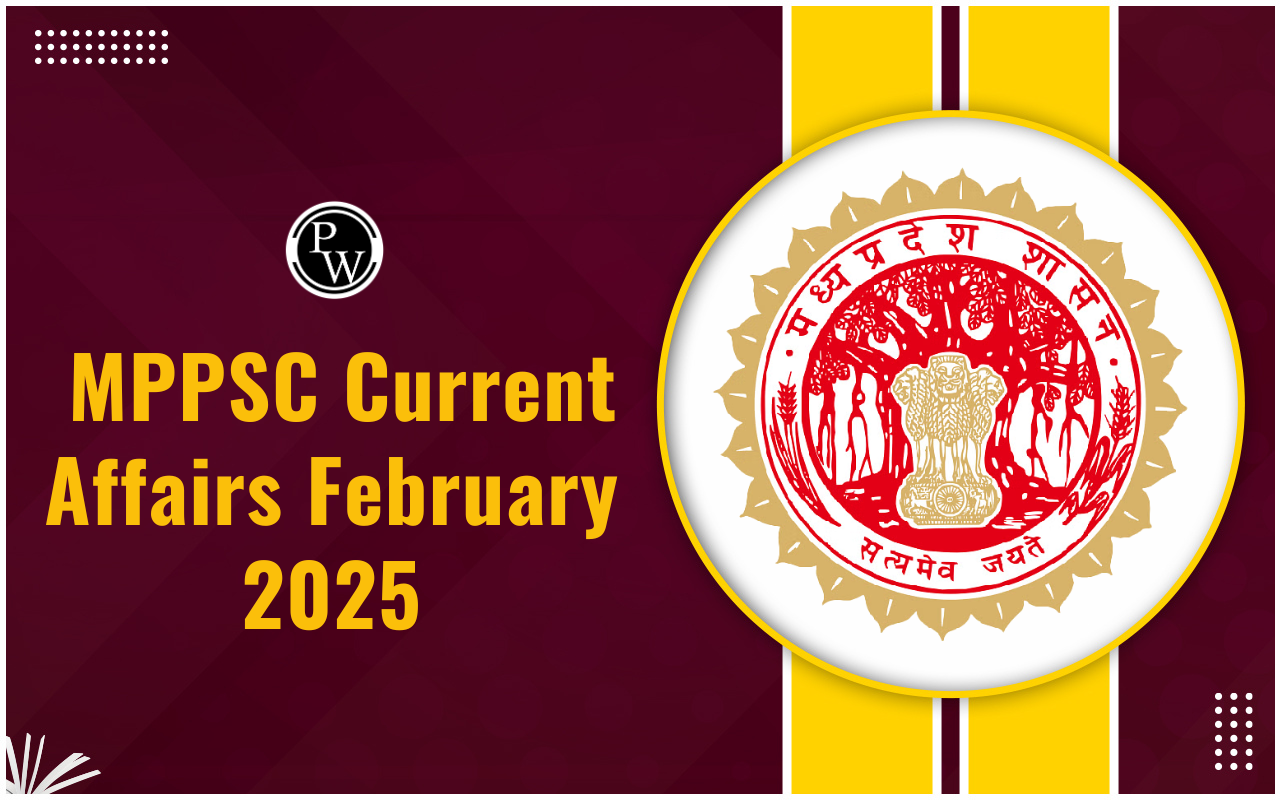
Mughal Empire: The Mughal Empire was a Muslim dynasty originating from Turkic-Mongol roots, ruling over large parts of northern India from the early 16th to the mid-18th century. Despite its decline in the mid-19th century, it left a lasting mark on Indian history. One of its key strengths was its effective governance for over two centuries, led by a line of talented rulers spanning seven generations. Their administrative system was well-organized and efficient.
One notable aspect of the Mughal Empire was its effort to unify Hindus and Muslims into a cohesive Indian state. Despite being Muslims themselves, the Mughal rulers sought to integrate both religious communities, fostering a sense of unity among diverse populations. This approach aimed at creating a harmonious society where people from different backgrounds could coexist peacefully. The Mughal Empire's legacy lies in its ability to govern vast territories, its talented rulers, and its inclusive policies that aimed to create a united India. Despite its eventual decline, the impact of the Mughal Empire on Indian history and culture is still felt today.Mughal Empire History
The Mughal Empire, spanning from 1526 to 1857, stands as a monumental chapter in the history of the Indian subcontinent. Established by Babur, a formidable conqueror hailing from Central Asia, this dynasty reached its zenith under illustrious rulers like Akbar, Jahangir, and Shah Jahan. Babur laid the foundation of the Mughal Empire in 1526 by emerging victorious against the Sultan of Delhi in the Battle of Panipat. However, it was under the reign of Akbar that the empire truly flourished, marked by sweeping administrative reforms, economic prosperity, and a spirit of religious tolerance. One of the hallmarks of the Mughal era was the construction of architectural marvels that continue to awe the world to this day. Iconic landmarks like the Taj Mahal and the Red Fort bear testament to the grandeur and opulence of Mughal architecture. Military conquests propelled the empire to unprecedented heights, making it one of the wealthiest and most powerful realms of its time. The Mughals not only expanded their territorial dominion but also fostered a rich cultural tapestry through their patronage of art, literature, and cuisine. However, the twilight of the Mughal Empire dawned in the late 17th century, marred by weak leadership, economic downturn, and the encroachment of European colonial powers. The British dealt the final blow by dissolving the empire in 1858 following the Indian Rebellion of 1857. Despite its demise, the Mughal Empire's legacy endures through the ages, leaving an indelible imprint on India's language, art, architecture, and culinary traditions. Moreover, its profound influence continues to reverberate through the annals of India's political and social history, underscoring its enduring significance in shaping the subcontinent's cultural landscape.Babur and the establishment of the Mughals
Babur, a prince of Chagatai Turkic descent, established the Mughal Empire in 1526. His lineage traced back to Timur (Tamerlane) and Genghis Khan, giving him a rich heritage. Born in 1483, Babur inherited the small principality of Fergana in 1494, situated north of the Hindu Kush mountains. In 1504, Babur expanded his territory by capturing Kabul and Ghaznī. Later, he took over Samarkand in 1511, but realizing the challenges posed by the Safavid dynasty and the Uzbeks, he shifted his focus to India. With dreams of his own empire, Babur set his sights on the fertile lands of Hindustan. His first move towards India came in 1519 when he invaded the Punjab region. Over the next few years, he gradually expanded his control, eventually setting his eyes on Delhi. Garnering support from local nobles, Babur faced off against Sultan Ibrahim Lodī's forces at the First Battle of Panipat in 1526, emerging victorious and gaining control over Delhi and Agra. However, his ambitions faced challenges from the Rajput confederacy led by Rana Sanga of Mewar. Babur skillfully defeated Sanga's forces at the Battle of Khanua in 1527 and continued his campaigns against other Rajput kingdoms. Although Babur won many battles, he faced challenges from Afghan rebels and the Sultan of Bengal. He fought bravely, but couldn't settle these conflicts because he got sick and there were big changes happening in Central Asia. In December 1530, Babur passed away near Lahore, leaving behind a legacy that would shape the course of Indian history. His conquests laid the foundation for the Mughal Empire, which would go on to become one of the most influential dynasties in the Indian subcontinent.Humayun
Inheriting the legacy of his father, Babur, Humayun stepped into a realm filled with challenges and aspirations. The Mughal victories at Panipat (1526), Khanua (1527), and the Ghaghara (1529) had subdued but not fully pacified the Afghans and Rajputs, leaving a lingering uncertainty over Mughal supremacy. Bahadur Shah of Gujarat, emboldened by Afghan and Mughal dissenters, posed a threat to Mughal rule in Rajasthan. Despite Humayun's successful occupation of Gujarat in 1535, the region remained unsettled until Bahadur’s demise in 1537. Meanwhile, Sher Shah of Sur, an Afghan leader, rose to power in Bihar and Bengal, challenging Humayun's authority. In 1539, Sher Shah dealt a significant blow to Humayun's reign by defeating him at Chausa, followed by another defeat at Kannauj in 1540, leading to Humayun's exile from India. Seeking refuge in Iran, Humayun found support from Shah Ṭahmasp, enabling him to reclaim territories. He conquered Kandahar in 1545 and waged battles against his disloyal brother, Kamran, to secure Kabul multiple times until 1550. Amidst civil strife among Sher Shah's successors, Humayun seized Lahore in February 1555. Subsequently, he defeated Sikandar Sur, a rebellious Afghan governor, at Sirhind, reclaiming Delhi and Agra in July of the same year. Tragically, Humayun met his demise due to a fatal accident in his library staircase. However, his enduring legacy lives on through his architectural marvels, notably his tomb in Delhi, recognized as the first great Mughal masterpiece and a UNESCO World Heritage site since 1993.Akbar the Great and the consolidation of the empire
In the mid-16th century, Akbar rose to power amidst a turbulent period for the Mughal Empire. Following his father Humayun’s death, Akbar faced a significant challenge from Hemu, a Hindu minister who contested the throne. However, with the guidance of Bayram Khan, Akbar secured a crucial victory at the Second Battle of Panipat in 1556, which marked a turning point for the Mughal dynasty. Despite inheriting a fractured empire, Akbar proved to be a remarkable leader. His strategic expansion efforts helped solidify the Mughal presence across northern and central India. By the time of his death in 1605, the empire stretched from Afghanistan to the Bay of Bengal and southward into regions like Gujarat and the northern Deccan. A key aspect of Akbar’s governance was his inclusive approach, particularly towards Hindus and Rajputs. He actively involved Rajput princes in high-ranking positions within the Mughal administration, fostering cooperation and reducing discrimination against non-Muslims. Akbar abolished certain taxes and ensured Hindus had opportunities for advancement within his empire. The incorporation of the fiercely independent Hindu Rajputs was achieved through a mix of conciliation and conquest. Akbar formed alliances through marriage, acknowledging local rulers’ authority while securing their allegiance to the Mughal throne. However, those who resisted faced severe consequences, as seen in the capture of Chitor in 1568. Akbar also sought to balance his Muslim identity with the diverse religious landscape of his subjects. He abolished practices like forced conversions and elevated Hindus to positions of influence. To further unify his diverse subjects, Akbar established the Dīn-e Ilāhī, a new religious order based on Sufi principles. In terms of governance, Akbar implemented reforms to streamline both military and civil administration. He standardized military ranks and instituted measures to ensure accountability among officials. Additionally, Akbar focused on improving revenue assessment and collection to protect peasants and the state's financial interests. Towards the end of his reign, Akbar undertook further conquests, extending Mughal control into regions like Kashmir, Sindh, and the Deccan. However, his later years were marred by internal strife, particularly with his son Salīm, who challenged his authority. Akbar's reign left a lasting legacy, marked by his innovative governance and ability to navigate the complexities of a diverse empire. His policies of inclusivity and administrative reforms played a crucial role in the endurance of the Mughal Empire for generations to come.Jahangir
Jahangir, the son of the famed Mughal Emperor Akbar, ascended to the throne in 1605, continuing his father's legacy of governance and religious tolerance, particularly towards Hinduism. One of his notable achievements was resolving the conflict with Mewar, a Rajput principality that had resisted Akbar's rule. While Mewar accepted Jahangir as suzerain, it maintained a level of independence unmatched by other princely states. In 1611, Jahangir married Mehr al-Nesāʾ, famously known as Nur Jahan. This marriage not only marked a personal union but also brought significant changes to the Mughal court dynamics. Nur Jahan's family, including her father Iʿtimād al-Dawlah and brother Āṣaf Khan, rose to prominence alongside her. Her niece Arjūmand Bānū Begum (later known as Mumtāz Maḥal) married Jahangir's son Prince Khurram (who would later become the emperor Shah Jahān) in 1612. During Jahangir's absence from Agra for military campaigns in the south from 1613 onwards, Nur Jahan's influence grew significantly. Alongside her family members, she played a crucial role in court affairs, even issuing mandates in Jahangir's name. However, this rise to power was not without its complications. Nur Jahan's attempts to secure her family's position and influence, including advocating for her son-in-law as Jahangir's successor, led to conflicts with Prince Khurram and Āṣaf Khan. Following Jahangir's death, Nur Jahan faced a downturn in her fortunes. She was confined for the rest of her life, her once-powerful influence waning under the new emperor Shah Jahān's rule. This episode underscores the intricate power struggles and familial rivalries within the Mughal court, where even the most influential figures could fall from grace. Jahangir and Nur Jahan's story is not just one of romance and intrigue but also a reflection of the complexities of Mughal politics and the shifting dynamics of power within the empire. Their legacy continues to fascinate historians and enthusiasts alike, shedding light on a remarkable period in Indian history.Shah Jahan
Shah Jahan, formerly known as Prince Khurram, ascended to the Mughal throne in 1628, marking the beginning of a remarkable era in Indian history. His reign, lasting from 1628 to 1658, was characterized by significant military triumphs and unparalleled architectural achievements. One of Shah Jahan's notable accomplishments was his success in expanding Mughal influence in the Deccan region. By 1636, he had annexed Ahmadnagar and compelled Golconda and Bijapur to pay tribute to the Mughal Empire. Additionally, in 1638, the fortress of Kandahār surrendered to Mughal forces, further extending their power in the northwest. Shah Jahan's passion for architecture was legendary, and his reign witnessed the construction of several iconic monuments. In Agra, he commissioned the construction of two magnificent mosques, the Motī Masjid (Pearl Mosque) and the Jāmiʿ Masjid (Great Mosque). However, his most famous architectural marvel is undoubtedly the Taj Mahal, built in memory of his beloved wife, Arjūmand (Mumtāz Maḥal). This timeless masterpiece stands as a testament to Shah Jahan's love and artistic vision. Upon relocating his capital from Agra to Delhi in 1648, Shah Jahan embarked on an ambitious project to create the new city of Shāhjahānābād. In Delhi, he constructed the majestic Red Fort, a sprawling fortress-palace complex that served as the seat of Mughal power. Additionally, another Jāmiʿ Masjid was built in Delhi, adding to the architectural splendor of the city. Shah Jahan's reign was not only marked by grand architectural endeavors but also by a flourishing of culture and the arts. His court was renowned for its opulence and extravagance, attracting poets, scholars, and artists from far and wide. Literary pursuits thrived, and the arts of painting and calligraphy reached new heights under his patronage. Despite his achievements, Shah Jahan's military campaigns in Balkh and Badakhshān, along with his attempts to reclaim Kandahār, strained the empire's finances. The cost of these expeditions pushed the empire to the brink of bankruptcy, overshadowing some of the glory of his reign. In summary, Shah Jahan's legacy is one of architectural grandeur, cultural richness, and military prowess. His reign left an indelible mark on Indian history, shaping the landscape of the Mughal Empire and leaving behind enduring symbols of his greatness for generations to admire.Aurangzeb
Aurangzeb, who ruled from 1658 to 1707, was a significant figure in Mughal history, known for expanding the empire to its greatest extent while also facing challenges that would contribute to its decline. Aurangzeb's ascent to the throne was marked by a war of succession among his brothers, leaving him victorious but also setting the stage for internal conflicts. Despite expanding the empire through conquests, including annexing the Deccan kingdoms of Bijapur and Golconda, his reign was plagued by political and religious intolerance. Initially, Aurangzeb followed the Mughal tradition of conquering territories, reconciling with defeated enemies, and incorporating them into the imperial administration. However, challenges arose, particularly from figures like Shivaji, a Maratha chief who resisted Mughal authority. Shivaji's coronation in 1674, which included Hindu religious rituals, bolstered his support among Hindus and garnered the cooperation of Muslim sultans in the Deccan. Aurangzeb's policies became increasingly rigid, leading to the exclusion of Hindus from public office and the destruction of their religious institutions. Persecution of Sikh communities further fueled unrest, with rebellions erupting among Rajputs, Sikhs, and Marathas. Heavy taxation burdened the farming population, while the excessive appointment of officials drained resources without corresponding economic growth. By the time of Aurangzeb's death in 1707, the Mughal Empire faced significant challenges. The Marathas in the Deccan remained resilient, internal disputes weakened Aurangzeb's authority, and the empire struggled under the weight of its own governance. Aurangzeb's reign, while marked by expansion, ultimately contributed to the decline of the once-mighty Mughal Empire.Decline of the Mughal Empire
The Mughal Empire, once a formidable force in Indian history, faced a gradual decline marked by instability and financial difficulties in the aftermath of Aurangzeb's reign. Under Aurangzeb's successors, including Bahadur Shah I and Farrukh-Siyar, the empire grappled with internal rebellions and external threats. Poor fiscal management, reminiscent of Aurangzeb's policies, exacerbated the empire's financial woes. Bahadur Shah II, the last Mughal emperor, faced increasing vulnerability as the dynastic centre weakened. The court relied heavily on revenue and support from regional governors, further diminishing central authority. During Muḥammad Shah's reign, from 1719 to 1748, the empire began to disintegrate due to dynastic conflicts, factional rivalries, and the disruptive invasion of Nādir Shah of Iran in 1739. After Muḥammad Shah's death, Maratha forces dominated much of northern India, reducing Mughal rule to a small territory around Delhi. The decline continued as the Marathas and later the British exerted control over Mughal territories. Bahadur Shah II, the final Mughal ruler, was exiled to Yangon (formerly Rangoon) by the British following his involvement in the Indian Mutiny of 1857–58. In summary, the Mughal Empire's decline was characterized by internal strife, external invasions, and the erosion of central authority, ultimately leading to its fragmentation and eventual subjugation by regional powers and colonial forces.Mughal Empire Map & Location
The Mughal Empire, a major historical dynasty, was located in the Indian subcontinent, covering areas that are now India, Pakistan, Bangladesh, and parts of Afghanistan. This vast empire spanned diverse landscapes, from the fertile plains of the Ganges River to the rugged terrain of the northwest. Throughout its history, the Mughal Empire's capital cities changed several times, each becoming a center of power and administration. Agra, famous for the stunning Taj Mahal, was one of the empire's early capitals, showcasing its wealth and architectural brilliance. Fatehpur Sikri, a grand city built by Emperor Akbar, also served as an important hub for governance and culture. Eventually, Delhi became the main seat of Mughal authority due to its strategic location and historical importance. The city of Delhi saw the peak of Mughal power, with grand palaces, bustling markets, and impressive monuments that displayed the empire's splendor. The Mughal Empire's vast and varied territories played a crucial role in its rich heritage, uniting different regions and cultures under Mughal rule and leaving a lasting impact on the history of the Indian subcontinent. Spanning diverse regions and cultures, the Mughal Empire's geographic expanse played a crucial role in shaping its rich heritage and legacy. From the bustling cities of the Gangetic plains to the verdant landscapes of Bengal and the rugged mountains of Afghanistan, the empire's territories were united under the banner of Mughal rule, leaving an indelible mark on the history of the Indian subcontinent.Mughal Empire FAQs
What was the Mughal Empire?
The Mughal Empire was a powerful Muslim dynasty that ruled large parts of northern India from the early 16th to the mid-19th century. It was founded by Babur in 1526 and is known for its strong governance, cultural achievements, and magnificent architecture.
Where was the Mughal Empire located?
The Mughal Empire was located in the Indian subcontinent, covering present-day India, Pakistan, Bangladesh, and parts of Afghanistan. Its capitals included Agra, Fatehpur Sikri, and Delhi.
Who were some of the most famous Mughal rulers?
Some of the most famous Mughal rulers were Akbar, Jahangir, Shah Jahan, and Aurangzeb. Akbar was known for his administrative reforms and religious tolerance, while Shah Jahan is famed for building the Taj Mahal.
What were the main achievements of the Mughal Empire?
The Mughal Empire is known for its impressive architecture, such as the Taj Mahal and the Red Fort, its efficient administrative system, and its efforts to unify Hindus and Muslims. The empire also left a lasting legacy in Indian art, language, and culture.
Why did the Mughal Empire decline?
The Mughal Empire declined due to weak leadership after Aurangzeb, financial troubles, internal rebellions, and the rise of European colonial powers. The British dissolved the empire in 1858 following the Indian Rebellion of 1857.
🔥 Trending Blogs
Talk to a counsellorHave doubts? Our support team will be happy to assist you!

Check out these Related Articles
Free Learning Resources
PW Books
Notes (Class 10-12)
PW Study Materials
Notes (Class 6-9)
Ncert Solutions
Govt Exams
Class 6th to 12th Online Courses
Govt Job Exams Courses
UPSC Coaching
Defence Exam Coaching
Gate Exam Coaching
Other Exams
Know about Physics Wallah
Physics Wallah is an Indian edtech platform that provides accessible & comprehensive learning experiences to students from Class 6th to postgraduate level. We also provide extensive NCERT solutions, sample paper, NEET, JEE Mains, BITSAT previous year papers & more such resources to students. Physics Wallah also caters to over 3.5 million registered students and over 78 lakh+ Youtube subscribers with 4.8 rating on its app.
We Stand Out because
We provide students with intensive courses with India’s qualified & experienced faculties & mentors. PW strives to make the learning experience comprehensive and accessible for students of all sections of society. We believe in empowering every single student who couldn't dream of a good career in engineering and medical field earlier.
Our Key Focus Areas
Physics Wallah's main focus is to make the learning experience as economical as possible for all students. With our affordable courses like Lakshya, Udaan and Arjuna and many others, we have been able to provide a platform for lakhs of aspirants. From providing Chemistry, Maths, Physics formula to giving e-books of eminent authors like RD Sharma, RS Aggarwal and Lakhmir Singh, PW focuses on every single student's need for preparation.
What Makes Us Different
Physics Wallah strives to develop a comprehensive pedagogical structure for students, where they get a state-of-the-art learning experience with study material and resources. Apart from catering students preparing for JEE Mains and NEET, PW also provides study material for each state board like Uttar Pradesh, Bihar, and others
Copyright © 2026 Physicswallah Limited All rights reserved.









